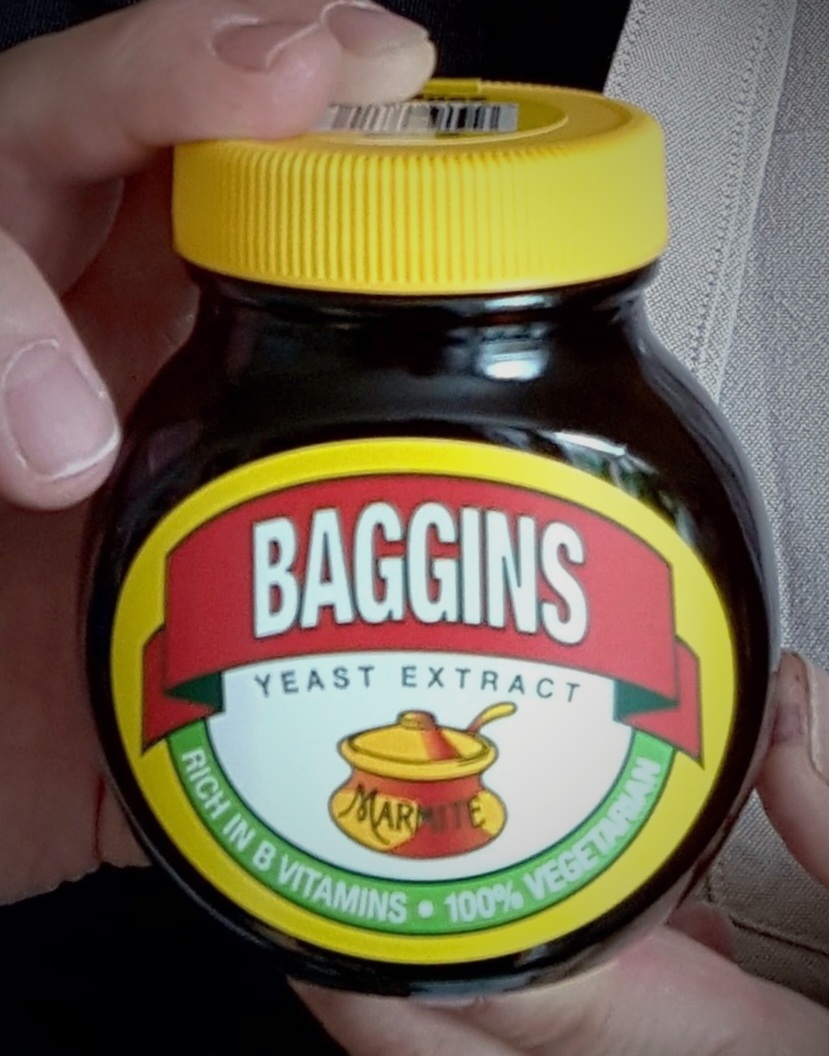We’re reaching the end of an era wherein billions of dollars of investor money was shovelled into tech startups to build large user-bases, and now those companies (now monoliths) are beginning to constrict their user-bases and squeeze for every single penny they can possibly extract. Fair or not.
Now more than ever, it’s important for us to step back and reconsider whether we want to be billboards for these companies anymore.
For anyone unfamiliar, some good resources to have when starting your degoogling journey are below:
Privacy Guides - A list of privacy-respecting services you can use.
Plexus - A crowdsourced information bank of service compatibility with degoogled devices.
This random PDF - A study from 2018 detailing data that Google tracks about its’ users.
It’s been a long time in the making, but I’ve finally degoogled and largely removed all proprietary software from my personal life. I know this topic is pretty well covered here and elsewhere so just to add to the list of others, here’s where I’m at these days:
- OS: Fedora (Silverblue) Linux (w/ AMD Radeon GPU)
- Email: Thunderbird w/ hosted email over IMAP
- Calendar/Contacts: Radicale instance w/ DAVx⁵ on Android
- Storage: Syncthing
- Web: Firefox
- Search: Startpage and DuckDuckGo mostly, but still use Google and Bing on occasion
- IM: Signal
- Desktop productivity: LibreOffice when I need it (Collabora Office on Android)
- Notes: Vim, VS Code (Markor on Android); most of my “docs” are just plain text files written in markdown
- Passwords: KeepassXC/DX
- Code editor: Vim, VS Code
- GrapheneOS on mobile, with almost entirely FOSS apps
- Kindle e-book reader with management via Calibre
- Media managed by Kodi with a raspberry pi
- Proxmox hypervisor for Windows/Linux VMs and containers
Gaming under Linux has improved unbelievably these past few years, now that Steam is contributing with their Steam Deck platform. I used to have to dual-boot Windows to keep up with the latest titles, but I wiped it about a year ago and things have been great.
I still rely on Microsoft Excel and Adobe Photoshop for some tasks, but less so now than ever before. Unfortunately, my work will always be a Windows-only environment.
How has a self hosted imap been treating you?
I heard some pretty brutal stories, like big email providers just refusing emails from self hosted servers
How do you use syncthing for storage? Kinda confused.
Hah, that’s a fair question! We use syncthing in place of cloud storage.
We have several 1-way and 2-way shares configured across about 10 devices. Our camera rolls are synced to the home file server while we’re on the road, thus eliminating the need for Google Photos. It also keeps our shared KeePass database in sync between all clients, syncs wallpapers across desktops, etc. It’s excellent software and I really can’t say enough good things about the project.
It’s no replacement for actual backups, which I do perform monthly with copies stored off-site, but it can be a great solution for those wanting to move away from Google Drive, Dropbox, etc.
Ahh okay thanks for the explanation. The way you use it seems alot easier and concise than what I thought you used it as, specially the central home server part. Have you experienced any corruptions or loss of data using your method? That’s the main concern I have with programs that sync, like syncthing.
We’ve been using it across many devices for several years now and haven’t had any data loss or corruption. It handles 2-way conflicts very well, creating duplicate files that allow you to compare and merge when necessary.
This has only happened with our KeePass database, which is shared across all of the devices, and even then it was only when two of us modified the db within just a few minutes of each other (rare).
Wow, surprising really, might just have to try it and set it up tomorrow! Thank you, hope it works out for me lol.
No problem! Just a couple of tips…
-
It will create a default share upon installation; you can just delete this and create a new share for whatever/wherever you actually want it to be
-
Don’t try to nest your shares (e.g. don’t create a share in a subfolder of another share). I think Syncthing prevents this now, but in the past it would let you do it and it caused issues due to recursion.
Try to think about a logical structure of your shares that will make the most sense for your use case. If you’re only syncing one folder, this won’t be an issue, but if you have lots of clients with various shares, you’ll need to consider how those folders are structured on the devices so that they don’t overlap.
If you have any questions, feel free to shoot me a msg or post to one of the selfhosted communities. Good luck!
-
deleted by creator
What are you using for syncing and viewing your photos? I ended up with a mailbox.org account, because I really want my contacts to be synced to the OS on my phone. So right now I just upload them to my cloud drive there, but I need to at least automate it. I might end up using the OX Drive app that mailbox.org recommends, or I might end up using syncthing to sync locally, and then push them up to the mailbox.org drive using webdav.
I’m just using Simple Gallery on my phone for now, not sure where I’ll end up on my laptop once I finish switching off the Apple ecosystem back to a Thinkpad running Linux. I’ve been looking at Piwigo and PhotoPrism a bit, but haven’t given them a try yet. PhotoPrism has webdav support, so it’s especially intriguing.
On the other hand, I might switch to Proton Mail in 10-20 years when they implement the promised contact sync to the OS. Or even better, if Tutanota does it. But I guess if I use webdav, it leaves me pretty open to spin up a server somewhere for photos and other files. I’ve already been thinking about getting a Baikal server going for VJOURNAL support, to run jtxtasks, not that Baikal supports webdav…
deleted by creator
I deleted my google drive content so they can’t arbitrarily decide something I wrote is worth banning my account over or use it to train their AIs, I made a backup, obviously.
Even though my content is safe, deleting it off of Google’s servers felt like drowning my own children in a bathtub
I have started to degoogle bits and pieces. I self-host the majority of the services I need and really enjoyed the journey so far since I learned so much. I am approaching the stage in my life where I have less time to spend on personal hobbies so I fear this path may not be sustainable. In my opinions here are the pros and cons.
Pros:
- Full control of my data
- Pick the ideal tool from the open source community
- Learning experience
- Engagement with community
Cons:
- Technical knowledge needed to setup and maintain self-hosted tools
- Self-hosted environments have security risks (best to put everything behind VPN)
- Disparate tools don’t connect together (requires additional automation configuration)
- Additional costs for services including and not limited to: domain name, email, backup storage, self-host server hardware, VPN, and donations to devs
- Higher personal downtime due to lacking features, server and service maintenance
- Time sink to learn, research, general devops of tools, maintenance of server
Key services to name a few:
- File storage - Nextcloud
- File sync - Syncthing
- Office - Nextcloud + Collabora
- Email - Mailfence
- Photos - Photoprism
So far there are more negatives than positives, but the positives still outweigh negatives. I do have to say degoogling is getting easier than before.
I’ve been running my own Nextcloud instance since 2020, which, combined with ProtonMail, has replaced basically everything I was using Google/Microsoft for
Didn’t realize you could host your own, that’s good to know
I used to rely almost exclusively on Google for almost anything online. Fortunately, I’m much less dependent on Google and their services now. I’m even self-hosting some of my own services nowadays!
- Search engine: Ecosia and DuckDuckGo
- E-mail: Protonmail
- File storage: Nextcloud (selfhosted)
- Online Office Suite: Nextcloud Office (selfhosted)
- Maps: OpenStreetMaps
- 2FA App: Aegis
- Translator: DeepL
- Notes and Tasks: Obsidian.md
- Calendar: An actual wall calendar :)
Every single one of these apps/services used to be provided by google, so I think it’s safe to say I’ve come a long way!
Of course, things could be better. I still use Google Contacts for synchronizing my, hum, contacts. I also use YouTube quite a bit, but as a paying customer my experience with it is just fine. I also use gboard on my phone — for bilingual speakers there’s just no good alternative, imho. And, finally, I download/update most of my phone apps through Google Play.
How do you host nextcloud? At home or on a vps?
Did you have any self hosting experience before doing that?
Do you know Logseq? It’s an OpenSource/FOSS alternative to obsidian
How do you host nextcloud? At home or on a vps?
On a VPS. Later down the road I intend to build my own home server, but that will take some time and money. A VPS is not ideal, but that’s leagues above trusting Google and the likes, and so far it has been working well enough for me.
Did you have any self hosting experience before doing that?
None at all.
Do you know Logseq? It’s an OpenSource/FOSS alternative to obsidian
I did try it, and it’s a cool project, but not as good as Obsidian, imho.
Thanks for the reply. How did you learn about self hosting nextcloud? May I ask what’s the pricetag for a vps for nextcloud? Are you using a preconfigured is from nextcloud?
How did you learn about self hosting nextcloud?
I used this guide: https://github.com/nextcloud/all-in-one/blob/main/reverse-proxy.md
I also had the help of a webdev friend of mine, that taught me the basics of how to setup and use Docker.
May I ask what’s the pricetag for a vps for nextcloud?
I hired my VPS for around $200 a year (after comverting from Brazilian Reais to American Dollars). It gives me a VPS with 2 vcores, 2GB RAM and 40 GB SSD. There are many VPS providers that can offer you somthing with similar specs and and prices, like Hostinger, AWS and the likes. (Depending on where you live, you may actually find much better prices)
Outside of work I’ve degoogled with the exception of google calendar (shared family google calendar so that would need to bring everyone along with me!) and unfortunately the google Wi-Fi/nests.
I would like to swap out the google Wi-Fi but it just seems like such a lot of money to waste and they are working at the moment for the mesh Wi-Fi. I’ve just made sure to disable and opt out to as many of the google analytic tracking as possible.
The biggest thing I de-Googled was gmail. I had my own domain already so it wasn’t tough to move (to my web hosting provider’s included email service).
I switched to Firefox+uBO from Chrome.
They de-Googled RSS for me (now on Newsblur).
Things I still use:
- Drive for backups (but have a local backup in case their AI bans me)
- YouTube Premium (I hate ads)
- Contacts (Cardbook addon for Thunderbird works well with this)
- Calendar (Thunderbird supports natively)
- Keep (Shared shopping list)
- Pixel phone (I don’t really care for Apple, either)
Proton’s services, Cryptomator, Invideous, GrapheneOS, a handful of apps from f-droid.
Also, quick plug - !privacyguides@lemmy.one is the official Privacy Guides community on Lemmy!
pretty effectively!
I use a Searx instance for searching (with the engine it uses set to DDG), Tutanota for email and Piped/Invidious and Libretube for videos. meanwhile on both my phone and tablet I’ve used ADB to purge all of Google’s malware, and Play Services is outright disabled on my tablet lmao (and contrary to what one might think, the only thing it impacts is I don’t get app notifications)
and then I use Aurora Store to update Twitch and Discord, and I use alternatives from F-Droid for stuff like the calendar
The only thing I still hold onto my account for is YouTube. I pay for mailbox.org which covers email, calendar and cloud stuff. Their website could be better but the service is quality and their privacy policy is tight. When I was on android I used a bunch of custom roms with microg. My favourite ended up being calyxos but they all had a little jank here or there. I dearly miss NewPipe for android as a replacement for the official youtube app.
Edit: I also pay for Kagi for search. The price is a bit steep but I have found it justifiable in terms of the value I get from it. Whoogle and Searx are good options too
I have slowly but surely moved everything important off google. My main email is a proton mail now, and I changed my pixel for a oneplus :).
Changing from a Pixel to another Android phone is hardly degoogling, if anything it’s just inviting in another pair of eyes! Ironically the best way to degoogle on Android is with a Pixel running GrapheneOS!
I’ve wanted to do this too for about a year but I see no benefit since most addresses I correspond with are unencrypted. One-way encryption is negligibly any better - unless I’m seriously misunderstanding Proton.
I’d switch to @iCloud.com but that just feels goofy.
It’s more about the ethics of the company hosting than any encryption benefits for me personally. Self-hosting would be ideal but email is a bit too important for me to do that personally, so I use proton as a compromise.
Tried DDG a few times over the years. Sorry, but it just doesn’t do it for me. Results were terrible. Google had lots of results and it was just too much effort to keep switching from DDG if it doesn’t provide an answer. Because I know Google will.
I have been using DDG as default for probably two years now. I love how I get so few ads and a cleaner experience as well. I absolutely agree Google has better results sometimes and I just use !g at the start of my search to get purely Google results. The search operators are amazing and there are so many!
When using !g, be aware that Google can track that. It’s the same as just going to Google. If that matters to you.
Only apps by Google I use are gboard, gmail and translator. If someone knows well designed alternatives please share.
FlorisBoard keyboard is the one to watch as the Gboard killer. v0.40 will finally bring word suggestions and inline autocorrect. In all other respects, it’s more customizable than Gboard and can be configured to match the exact size/layout.
For email, K-9 Mail (soon to be Thunderbird Mobile) has made a lot of progress in modernizing its UI this year now that Mozilla has partnered up with the main dev, cketti.
Fastmail is fantastic from a user experience perspective, though depending on your privacy demands it may not pass the test.
Long time Fastmail user here. Where is it failing with respect to privacy?
Love Fastmail! I used Protonmail for a while but their development is soooo slow and they never seem to be able to deliver things on time. Promising features that are years late.
Proton is awesome. Yeah they are a bit slow with new features but they’ve been rolling out quite a bit recently. In the last few years we’ve got VPN, calendar, drive and proton pass. They even upgraded my premium account to Proton Unlimited (which gets like >500 GB storage) for free for no apparent reason other than a ‘thank you’.
The big one I was waiting for was Proton Drive, as Google drive was the last Google service I was really using, so the free storage upgrade was just the icing on the cake.
I’d use Proton pass too, but I’m already paying for Bitwarden family account and am pretty happy with that.
I deleted my Google accounts today and made a Proton email to replace my previous emails with. I’m now using Firefox and DDG, and it honestly feels much fresher now. I’m happy to finally be exploring alternatives to Google and learning about online security and integrity.
Deleting the old email account that fast is a bit risky. I still have my old yahoo account after switching to posteo two years ago and still sometimes get mails to it.











